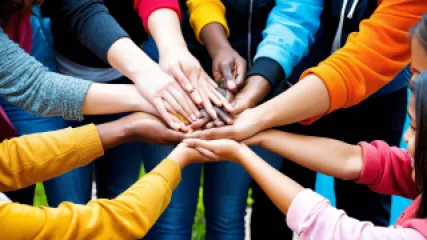Understanding and Enhancing Altruistic Tendencies
Introduction:
Altruism, the selfless concern for the well-being of others, is a fundamental aspect of human nature. While it has long been a topic of interest in various fields, including psychology, sociology, and philosophy, recent research has shed light on the psychological aspect of altruism and its profound impact on individuals and society as a whole. In this tutorial, we will delve into the concept of altruism, exploring its definition, psychological underpinnings, and ways to enhance altruistic tendencies.
What is Altruism?
Altruism can be defined as the unselfish behavior or actions that prioritize the welfare of others over one's own interests. It involves acts of kindness, empathy, compassion, and selflessness. Altruistic individuals often exhibit behaviors such as helping others in need, donating to charities, volunteering their time, and showing genuine concern for the well-being of others.
Altruism is not limited to humans; it can also be observed in various animal species. For instance, animals may risk their own safety to protect their offspring or members of their social group. This universal presence of altruism suggests that it is deeply rooted in our evolutionary history.
The Psychological Aspect of Altruism
Psychologists have long been intrigued by the underlying motivations and mechanisms behind altruistic behavior. Research in this field has highlighted several key factors that contribute to the development of altruistic tendencies.
Empathy and Compassion
Empathy, the ability to understand and share the feelings of others, plays a crucial role in altruism. When we empathize with someone, we can recognize their emotional state and experience a desire to alleviate their suffering or improve their well-being. Compassion, on the other hand, goes beyond empathy by motivating us to take action and help those in need.
Studies have shown that individuals with higher levels of empathy and compassion are more likely to engage in altruistic acts. These traits can be cultivated through practices such as mindfulness meditation, which enhances one's ability to empathize and feel compassion towards others.
Personal Values and Beliefs
Our personal values and beliefs also shape our altruistic tendencies. People who prioritize the welfare of others and hold prosocial values are more likely to engage in altruistic behavior. For example, individuals who strongly believe in social justice may actively participate in movements or initiatives aimed at promoting equality and fairness.
Furthermore, cultural and societal factors influence our altruistic inclinations. In some cultures, collective well-being and harmony are highly valued, leading to a greater emphasis on altruism and cooperation. Understanding these cultural nuances is essential for fostering a more altruistic society.
Enhancing Altruistic Tendencies
While altruism is a natural inclination for many, it is also a mindset that can be nurtured and developed. Here are some strategies to enhance altruistic tendencies:
Practice Gratitude
Cultivating gratitude can foster a more altruistic mindset. By regularly expressing gratitude for the positive aspects of your life, you develop an appreciation for the kindness and support received from others. This, in turn, motivates you to pay it forward and extend acts of kindness to others.
Engage in Prosocial Activities
Participating in prosocial activities is an excellent way to enhance your altruistic tendencies. Volunteer at local organizations, donate to charities, or engage in community service projects. These activities not only benefit others but also provide a sense of fulfillment and purpose.
Foster Empathy
Empathy is a crucial component of altruism. To foster empathy, actively listen to others, try to understand their perspectives, and practice putting yourself in their shoes. Engaging in perspective-taking exercises can significantly enhance your ability to empathize with others and respond altruistically.
Lead by Example
Be a role model for altruism in your community or social circles. Demonstrate kindness, compassion, and selflessness in your daily interactions. Your actions can inspire others to adopt more altruistic behaviors and create a ripple effect of goodwill.
The Benefits of Altruism
Engaging in altruistic behavior not only benefits others but also has numerous positive effects on individuals' well-being. Research findings have shown that practicing altruism can:
- Promote Mental Health: Altruistic acts have been linked to increased levels of happiness, life satisfaction, and overall well-being. Helping others can provide a sense of purpose and fulfillment, reducing the risk of depression and anxiety.
- Strengthen Social Connections: Altruism fosters positive relationships and social connections. When you help others, you build trust, empathy, and reciprocity, leading to stronger bonds with friends, family, and community members.
- Improve Physical Health: Studies have indicated that individuals who engage in regular acts of altruism experience improved physical health outcomes. Altruistic behaviors have been associated with lower blood pressure, decreased risk of chronic diseases, and even increased longevity.
- Enhance Sense of Meaning: Altruism provides individuals with a sense of purpose and meaning in life. By contributing to the well-being of others, you can experience a profound sense of fulfillment and personal growth.
Conclusion:
Understanding and enhancing altruistic tendencies is not only beneficial for society but also for individuals' well-being. By cultivating empathy, practicing gratitude, engaging in prosocial activities, and leading by example, we can develop a more altruistic mindset and contribute to a more compassionate and harmonious world. Embracing altruism aligns with the principles of positive psychology, promoting overall happiness and flourishing. So let us embrace the power of altruism and make a positive impact on the lives of others.






